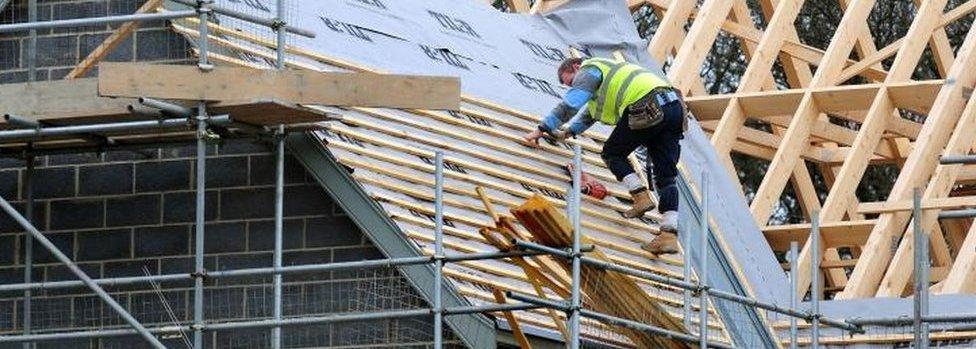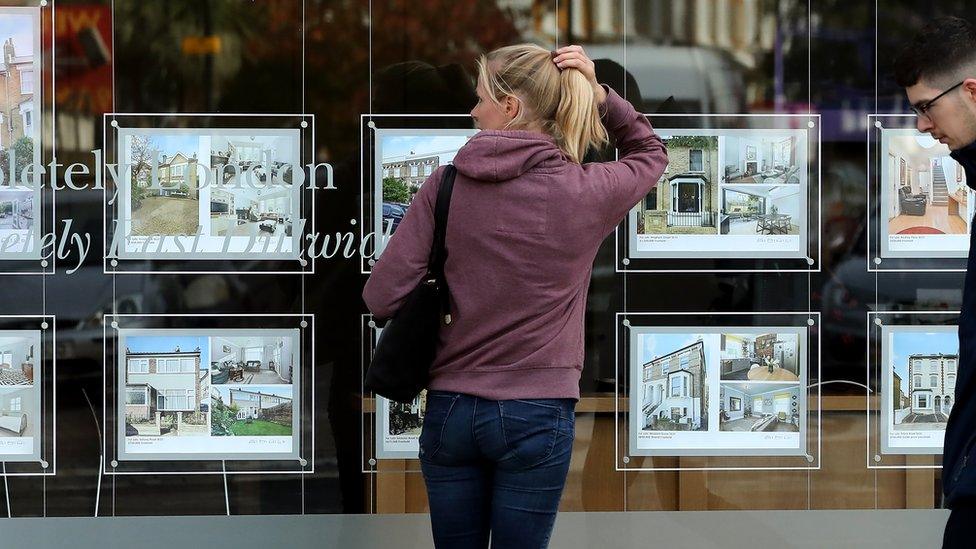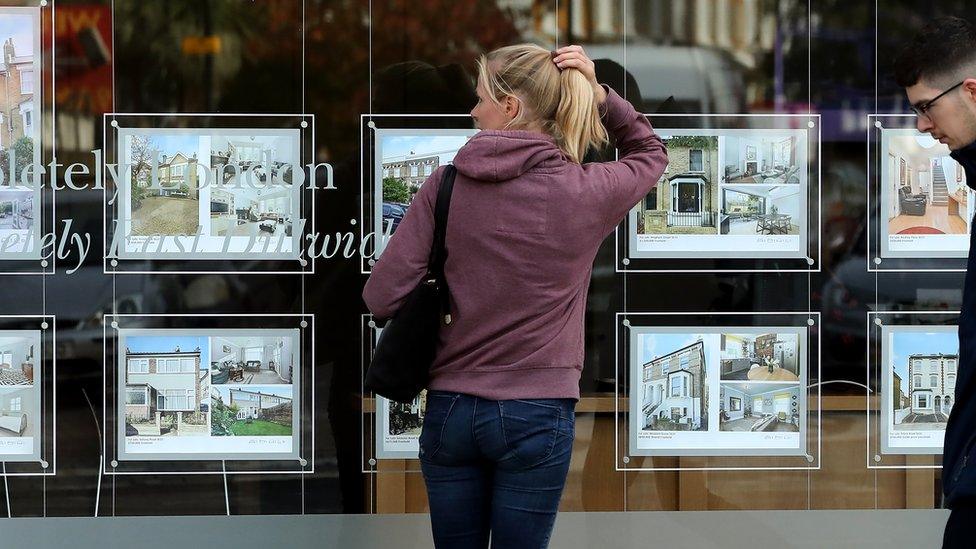'Covid means we may lose our first home'
- Published

Greg Saunders is calling for the government to extend the deadline
Greg and David saved throughout their 20s to afford their first home - but now their property plans have been thrown into doubt by the pandemic.
The couple successfully applied to the government's Help to Buy scheme, allowing them to afford the deposit for a new townhouse in Salford.
But Covid-related delays mean the property will not be built in time before the scheme is due to end.
"We can't buy the house without the scheme as it's unaffordable without it," said Greg Saunders, 31, who is buying with his boyfriend David Leith, 36.
"If the government does not safeguard people like us, we are going to lose about £2,000 in solicitor and mortgage broker fees."
He said he had spoken to others in a similar situation who were set to lose 10 times as much money, and be left with nowhere to live.
The government said it would continue to monitor the situation.

In seven years, the Help to Buy equity loan scheme has allowed 278,000 households to receive an advance from the government to help pay the deposit to buy a newly-built home.
The scheme, in its current form, is coming to an end in England. To qualify, homes need to be built by the end of February, and the sale completed by the end of March or, for some, by the end of May.
However, the pandemic has meant some of these homes will not be built by the deadline. In many cases, construction workers have needed to self-isolate, supply lines have slowed, overseas labour may have needed to quarantine, and some traders have been furloughed.
'Hundreds' face issues
In Greg and David's case, for example, the pandemic led to a delay in the supply of the windows.
The couple said their developer had been "great" in keeping them informed of the situation, and they understood why the inevitable delays had occurred.
The developer - a small family business called Hall and Co Property - itself faces lost sales revenue of more than £1m owing to the delays and the strict government deadline.
"No extension is worrying for us as a business. We could lose three or four house sales," said boss Jamie Hall, who pointed out that even the best laid plans can be ruined by a pandemic.
However, this is not the first but the second time that Greg and David have found themselves in this situation.
Last year, they changed their plans to buy another home - after being told that would not be ready in time.
In July, the government extended the Help to Buy deadline in England for two months, and the couple are calling for it to do so again.
The system varies in other parts of the UK. For example, in Wales the building and completion deadline is 23 December 2021.
Experts in the homebuilding sector said hundreds of people could find themselves in difficulty in England.
Baby due amid housing worries
One of those is Jamie McInerney, who is hoping to buy a home in Luton. He and his partner's first baby is on the way and they are now nervously waiting to find out whether their new home will be completed in time to allow them to buy a first family home.
"One or two weeks of bad weather or labour and supply issues will no doubt mean we do not meet the deadline and we would lose the house," he said.
"This would also leave us scrambling around to find somewhere else to live. Not to mention we would lose money on solicitor fees."
A spokesman for the Ministry for Housing said that construction could continue during the current lockdown, but it was aware of the problems.
"We recognise there have been delays caused by the pandemic. That's why we extended the Help to Buy build deadline by two months to 28 February and provided extra flexibility on the purchase deadline until 31 May 2021 to protect existing reservations made before 30 June 2020," he said.
"We are aware of the concerns raised and are continuing to monitor the situation."
A new Help to Buy equity loan scheme, external, with different criteria, begins in April and will last for two years. It is aimed specifically at first-time buyers but now includes regional caps on the value of properties bought using the scheme.
Related topics
- Published13 June 2019

- Published30 December 2018
